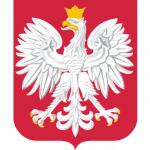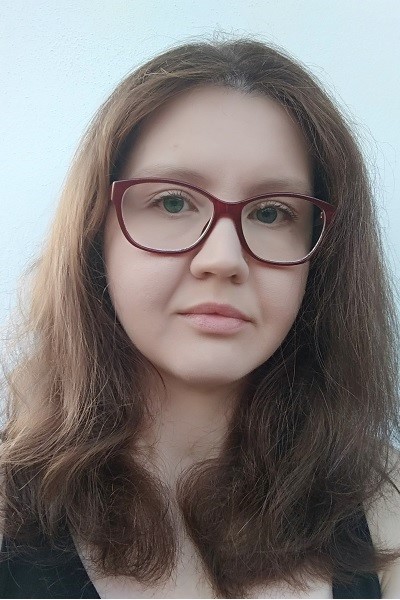dr Agnieszka Kliś-Brodowska
od października 2019 w Instytucie Literaturoznawstwa [75%] oraz Instytucie Nauk o Kulturze [25%]
Koordynator ds. specjalności projektowanie rozrywki interaktywnej oraz lokalizacja gier i oprogramowania (SPRINT-WRITE) oraz projektowanie rozrywki interaktywnej (SPRINT-WRITE II).
e-mail: agnieszka.klis@us.edu.pl
https://orcid.org/0000-0003-1024-1601
Tematyka badawcza:
- literatura gotycka (definicja gatunku/konwencji, dyskurs krytyczny literatury gotyckiej XX i XXI wieku),
- zagadnienia dyskursów współczesnej krytyki literackiej i teorii kulturowych,
- myśl post-strukturalistyczna (Michel Foucault),
- anglojęzyczna literatura wczesno-Kanadyjska,
- badania nad grami cyfrowymi,
- baśń jako konwencja trans-medialna.
Stopnie i tytuły naukowe:
Doktorat
2014 – Gothic Discourses: Cultural Theories and the Contemporary Conceptions of Gothic Fiction [Gotyckie dyskursy. Teorie kulturowe a współczesne koncepcje literatury grozy], Wydział Filologiczny, Uniwersytet Śląski.
Magisterium
2007 – The Vampire and the Unattainable Freedom in The Vampire Lestat and The Queen of the Damned by Anne Rice [Wampir a nieosiągalna wolność w „Wampirze Lestacie” i „Królowej Potępionych” Anne Rice], Wydział Filologiczny, Uniwersytet Śląski w Katowicach
Wybrane publikacje:
- Multiculturalism in video game studies: an iquiry into the current research and perspectives for study. W: Multiculturalism, multilingualism and the self: literature and culture studies, red. Jacek Mydla, Małgorzata Poks, Leszek Drong. Springer, Cham 2017, s. 139-155.
- Pisząc dyscyplinę: o historii badań gier cyfrowych i zawiłościach jej pisania na przykładzie “(bardzo) krótkiej historii game studies” Fransa Mäyry. „Homo Ludens” 2016, nr 9, s. 13-30.
- Videogames as Art : the Spirit of the “Literary Artist” in the Discourse of Game-Making [współautor Bartłomiej Kuchciński]. W: Engaging with Videogames: play, theory and practice, red. Dawn Stobbart, Monica Evans. Inter-Discplinary Press, Oxford 2014, s. 195-204.
- And how do you read this text? The Gothic, Gothic Studies and the Production of Meaning. W: The language of sense, common-sense and nonsense, red. Ewa Borkowska, Tomasz Burzyński, Maciej Nowak. Wydawnictwo Wyższej Szkoły Ekonomiczno-Humanistycznej, Bielsko-Biała 2012, s. 123-132.
- Civilisation and Fear: Anxiety and the Writing of the Subject, współred. Wojciech Kalaga. Cambridge Scholars Publishing. Newcastle upon Tyne 2012, ss. 350. ISBN 978-1-4438-3750-7.
- The Marginality of the Gothic: A Reconsideration. „Text Matters” 2012, vol. 2, iss. 2, s. 97-114. DOI 10.2478/v10231-012-0057-4
- From the outside to the inside and the other way round: the space of contemporary gothic cities. W: Exploring space: spatial notions in cultural, literary and language studies. Vol. 1, Space in cultural and literary studies, red. Andrzej Ciuk, Katarzyna Mołek-Kozakowska. Cambridge Scholars Publishing, Newcastle upon Tyne 2010, s. 378-386.
Agnieszka Kliś-Brodowska, PhD
Assistant Professor in the Institute of Literary Studies (the leading discipline) and the Institute of Culture Studies (the secondary discipline), the University of Silesia in Katowice
ORCID 0000-0003-1024-1601
https://www.researchgate.net/profile/Agnieszka-Klis-Brodowska
https://scholar.google.com/citations?user=xGVu8SEAAAAJ&hl=en
Research interests:
- Gothic fiction and the definition of the Gothic genre,
- discourse (Michel Foucault),
- Canadian English settler literature,
- game studies,
- (trans-media) fairy tale.
Selected publications:
- Ghosting history/historicizing the ghost: Time passage in T.C. Haliburton’s „The Old Judge”. „The Journal of Commonwealth Literature”. First published November 29, 2020, pp. 1-16 [online first]. DOI 10.1177/0021989420969768
- ”Going Back to the Middle Ages”: Tracing Medievalism in Julia Beckwith Hart’s „Ursula’s Convent” and John Richardson’s „Wacousta”. In: Medievalism in English Canadian Literature: From Richardson to Atwood, eds. M.J. Toswell, Anna Czarnowus. D.S. Brewer, Cambridge 2020, pp. 36-51.
- Pisząc dyscyplinę: o historii badań gier cyfrowych i zawiłościach jej pisania na przykładzie „(bardzo) krótkiej historii game studies” Fransa Mäyry. [Writing a discipline: A history of digital game research and the meanders of writing it on the basis of Frans Mäyrä’s “A (very) short history of game studies”]. „Homo Ludens” 2016, no. 9, pp. 13-30.
- The Marginality of the Gothic: A Reconsideration. „Text Matters” 2012, vol. 2, iss. 2, pp. 97-114. DOI 10.2478/v10231-012-0057-4.
- From the outside to the inside and the other way round: the space of contemporary gothic cities. In: Exploring space: spatial notions in cultural, literary and language studies. Vol. 1, Space in cultural and literary studies, eds. Andrzej Ciuk, Katarzyna Mołek-Kozakowska. Cambridge Scholars Publishing, Newcastle upon Tyne 2010, pp. 378-386.
Academic outreach and engagement:
- “Games Industry, Game Localisation and Production Logics” – guest lecture, University College Dublin, Ireland, 4 March 2021.
- „Bliżej nas: gry wideo a emocje” [Closer: video games and emotions] – lecture, the 3rd Silesian Science Festival, 26-27 January 2019.
- “Projektowanie gier wideo: od koncept artu po wersję BETA” [Videogame design: From concept art to beta] – demonstration stand, the 3rd Silesian Science Festival, 26-27 January 2019.






